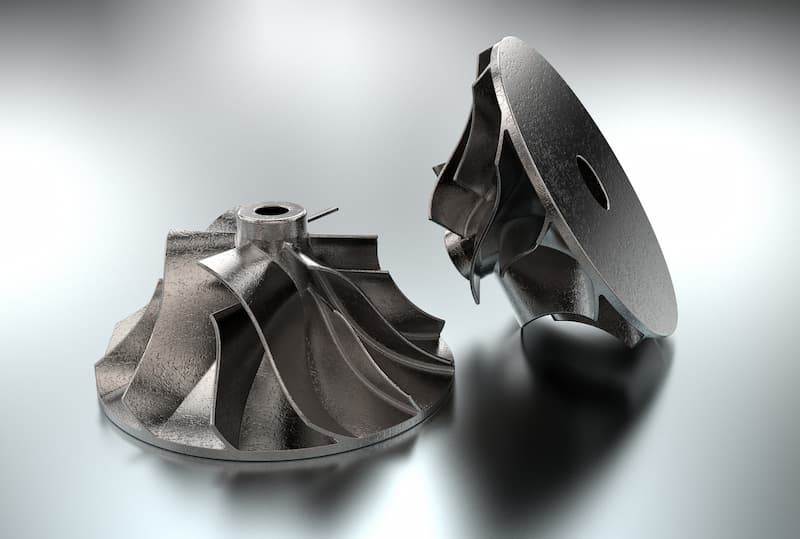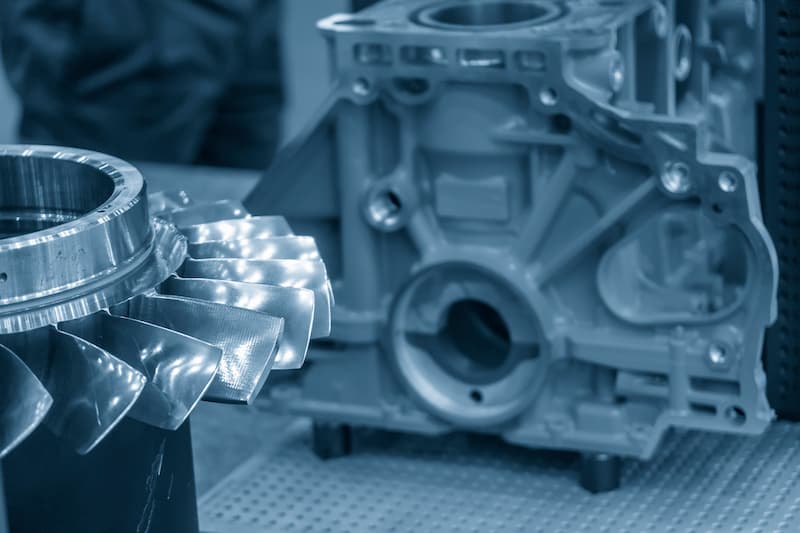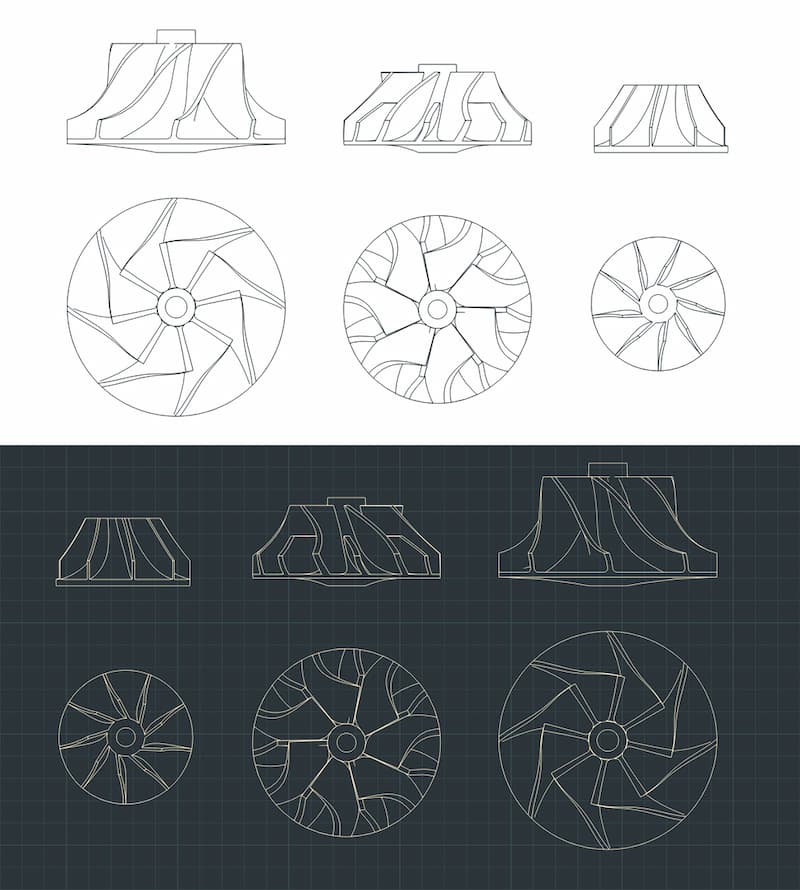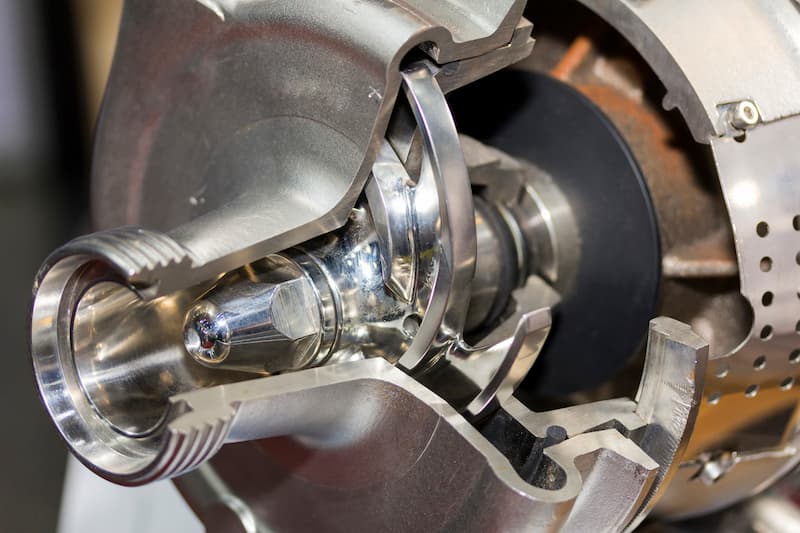What Is Impeller Casting?
As a machine or product designer, understanding different casting techniques is crucial in choosing the right method to suit your design needs. At Dean Group, we are committed to building open communication with our clients and providing you with any information and our metal casting expertise to assist you in making informed decisions about your casting requirements.
Today, we will explore the world of impeller casting, its benefits, applications, and why 3D printing prototyping is a valuable first step.
What Is Impeller Casting?
Impeller castings use various additional processes to ensure high precision and intricate designs. At Dean Group, we have spent decades perfecting our impeller casting process, combining our engineer's expert craftsmanship with modern technologies to produce superior castings.
History of Impeller Casting
The exact date when impeller casting was first invented is unclear, as it has been used for thousands of years. Impeller casting originates in ancient civilizations such as Egypt and China, where it was initially used to create intricate metal sculptures and jewellery. Over time, the technique found its way into industrial applications, including the manufacturing of impellers.
Over centuries, advancements in materials and techniques transformed impeller casting into a more efficient and precise process. The introduction of automated wax injection machines reduced the reliance on manual labour, allowing for the production of larger quantities of impellers with greater consistency.
Additionally, the development of computer-aided design (CAD) software and 3D printing technologies revolutionised impeller casting. These advancements enabled highly complex impeller designs with intricate internal features, improving efficiency and performance.
Benefits of Impeller Casting
Impeller casting offers a multitude of benefits for designers and manufacturers:
- Precision and Complexity: Impeller casting allows for intricate designs and near-net-shape manufacturing, ensuring precise dimensions and complex geometries. This is especially beneficial for industries with exceedingly high standards, such as aerospace.
- Cost-Effectiveness and Time-Saving: Impeller casting helps optimise resources while producing components with minimal material waste while maintaining high-quality results.
- Versatility: A wide range of metals, including aluminium, stainless steel, and nickel-based alloys. This versatility enables manufacturers to choose the most suitable material for their specific application. Impellers are generally cast in materials like:
- Stainless steel
- Iron
- Carbon Steel
For example, corrosion or heat-resistant stainless steel is ideal for heavy-duty environments with high rotational speeds. At the same time, impellers in the food or pharmaceutical industry will prefer materials like stainless steel or aluminium for cleanliness.
Investment Casting for Impeller Castings
Impeller designs can vary from simple with open vanes to complex with enclosed vanes, depending on the specific application requirements for efficient material movement. We recommend investment casting because it can produce complex shapes with tight tolerances and a good surface finish in various metals to suit your application. They provide dynamic balancing, fully machined impellers, and enhanced surface finishing.
Applications of Impeller Casting
Products of Impeller casting find their application in various industries due to their inherent advantages. Some common applications of impeller casting are:
Aerospace castings are utilised in aircraft engines, gas turbines, and propulsion systems due to their ability to withstand high temperatures and extreme conditions.
Industrial machinery castings are crucial in industrial pumps, compressors, and fluid handling equipment, delivering optimal performance and durability.
Oil and gas castings are crucial components in the oil and gas industry, used in various equipment such as pumps, compressors, and drilling equipment. They help ensure efficient fluid flow, withstand high pressures, and provide reliable performance in demanding environments.
Renewable energy metal castings find their place in the renewable energy sector, specifically in wind turbines and solar energy systems. In wind turbines, impeller castings are used in the turbine's rotor to convert wind energy into mechanical energy. In solar energy systems, impeller castings are part of the heat exchangers, pumps, and heat transfer fluids, ensuring efficient heat transfer and energy.
Why Choose 3D Printing for Prototyping
Before the actual impeller casting process begins, rapid casting prototyping has proven to be a beneficial first step. This innovative technique allows designers and manufacturers to visualise and refine their impeller designs before manufacturing. Using 3D printing for metal casting, potential issues or design flaws can be identified and resolved early on, saving time and costs in the production stage.
At Dean Group International, we offer comprehensive 3D printing prototyping services to help our clients bring their ideas to life and ensure a smooth transition from design to casting.
Impeller Casting at Dean Group
At Dean Group International, we understand the intricacies of many casting techniques, such as Die casting and the previously mentioned investment casting, and we’ll provide the expert guidance you need in selecting the most suitable approach for your design’s needs.
Quality Control and Testing in Impeller Casting
Maintaining the highest quality standards is essential in impeller casting, and we implement rigorous quality control measures throughout the casting process to ensure the integrity and reliability of our castings. We utilise advanced, non-destructive testing methods to detect defects and ensure the highest quality and performance.
Considerations and Challenges in Impeller Casting
While impeller casting offers numerous benefits, there may be challenges to consider. Design complexities, material selection, and tooling requirements must be carefully evaluated. We have over five decades of experience overcoming these challenges, and our team of experts is dedicated to providing comprehensive support and solutions to ensure successful impeller casting projects.
Dean Group: Highest Quality Metal Casting
Impeller casting is a versatile and efficient process used in various industries worldwide. Dean Group International's UK foundry has the expertise and experience to deliver superior impeller castings.
By understanding the advantages and applications of impeller casting and the benefits of 3D printing prototyping, designers and manufacturers alike will make informed decisions and achieve exceptional results. Contact Dean Group today to discuss your impeller casting needs and start the development process.
Registered in England VAT No: 146307478 Company Registration No: 1062820








